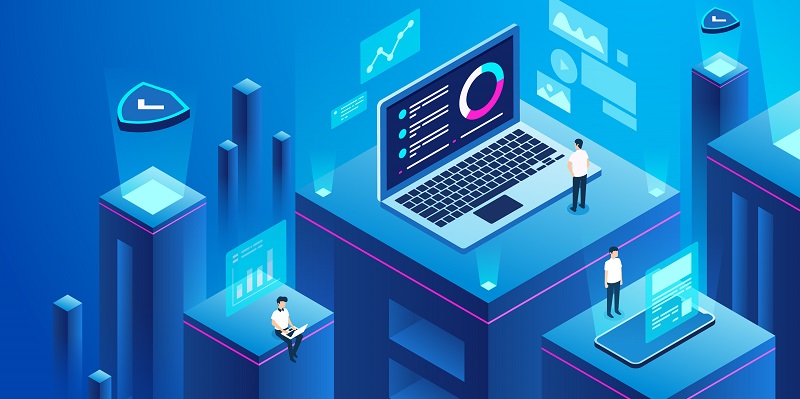The field of artificial intelligence (AI) is continuously evolving, and one area that has recently gained significant interest is generative AI. A recent analysis of TechTarget reader data reveals a remarkable increase in content on generative AI, indicating a growing interest in this field. This article delves into the potential impact of generative AI on IT operations, particularly within the realm of AIOps (Artificial Intelligence for IT Operations). We will explore the mixed results of AIOps implementation, the benefits of enhancing AIOps platforms with generative AI, the need for improvement in the field, and the promising outcomes of experiments involving richer contextual data. Ultimately, we will highlight the significant time-saving and incident resolution benefits generative AI can bring to IT operations.
Growing Interest in Generative AI
Recent data analysis by TechTarget indicates a substantial increase in content related to generative AI. Over the past year, there has been a remarkable 160% year-over-year increase in generative AI content. More specifically, in the last quarter, there has been a notable 60% increase in content on this topic. These statistics clearly affirm the growing interest and recognition of generative AI’s potential in various domains.
Mixed Results of AIOps Implementation
While AIOps has gained traction as an innovative approach to IT operations, research from TechTarget’s Enterprise Strategy Group reveals that organizations implementing observability practices have experienced mixed results with AIOps. According to the study, only 40% of AIOps tool users reported simplified operations and freed-up resources. On the other hand, the remaining 60% encountered limitations or had to intervene manually to achieve meaningful results in IT operations. These findings underline the need for further exploration and improvement in the utilization of generative AI within AIOps.
Enhancing AIOps Platforms with Generative AI
Generative AI tools have the potential to significantly enhance AIOps platforms. They can provide advanced anomaly detection, accurate root cause analysis, and automated remediation capabilities. By leveraging the power of generative AI, AIOps platforms can rapidly identify and address issues, ensuring smoother operations and minimizing disruptions.
Room for Improvement in Generative AI within AIOps
Although generative AI shows immense potential in the realm of AIOps, there are still many areas that demand development and refinement. Challenges such as data quality, interpretability, and algorithm robustness need to be addressed to maximize the effectiveness of generative AI in AIOps. Further research and innovation are required to optimize the integration of generative AI in existing AIOps workflows. To assess the efficacy of generative AI in AIOps, a recent experiment focused on providing richer contextual data. This included incorporating recent changes to the Configuration Management Database (CMDB), the list of impacted users and applications, service maps, and trace information. The experiment aimed to evaluate whether the inclusion of this additional data would improve the accuracy of incident identification and resolution.
Successful Root Cause Identification with Generative AI
The experimental study revealed remarkable outcomes. With the inclusion of richer contextual data, all three generative AI models correctly identified the root cause of the failure among the initial alerts. This signifies that generative AI, when trained on large language models (LLMs), can accurately identify and summarize incidents, assess their impact, and pinpoint their root causes.
Accurate Incident Summarization and Analysis
The ability to accurately identify incidents and summarize their impact is crucial for efficient incident handling. Generative AI, trained on LLMs, proves to be effective in this aspect. With good and extensive data, generative AI can provide IT operations staff with valuable insights, saving time on incident triage, facilitating correct root cause analysis, and ultimately enabling faster incident resolution. These benefits are instrumental in enhancing overall IT operational efficiency.
Time-saving Benefits for IT Operations Staff
The successful implementation of generative AI in AIOps can lead to significant time-saving advantages for IT operations staff. By automating incident triage and providing accurate root cause analysis, generative AI allows for quicker and more efficient incident resolution. This not only improves operational productivity but also reduces downtime, ensuring business continuity.
In conclusion, generative AI has the potential to revolutionize IT operations by streamlining incident handling processes. Despite the need for continued growth and enhancement in generative AI within AIOps, it is clear that the integration of generative AI tools holds promising prospects. From improving incident identification to providing accurate incident summaries, the benefits of generative AI are evident in enabling more efficient and effective IT operations.

